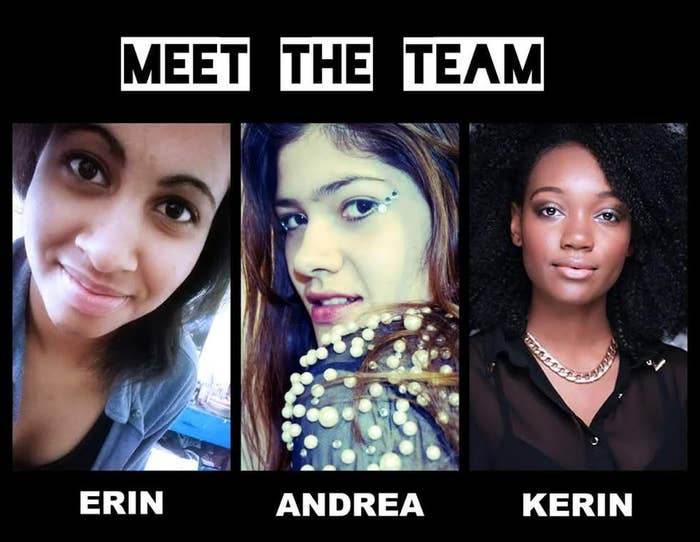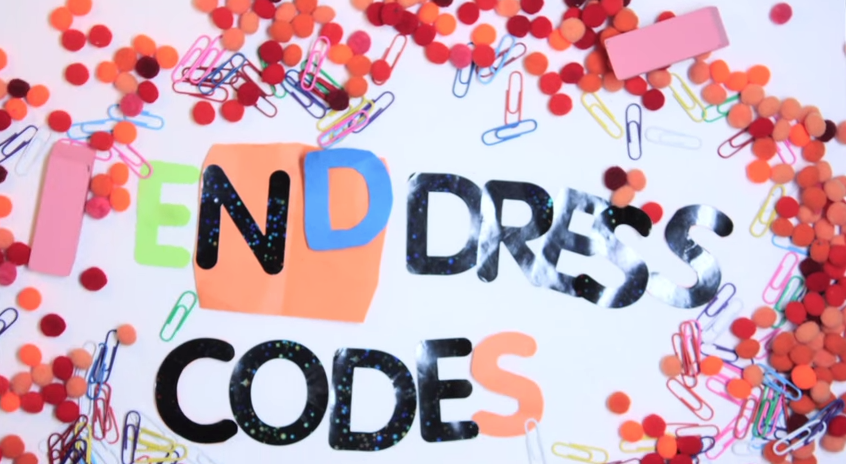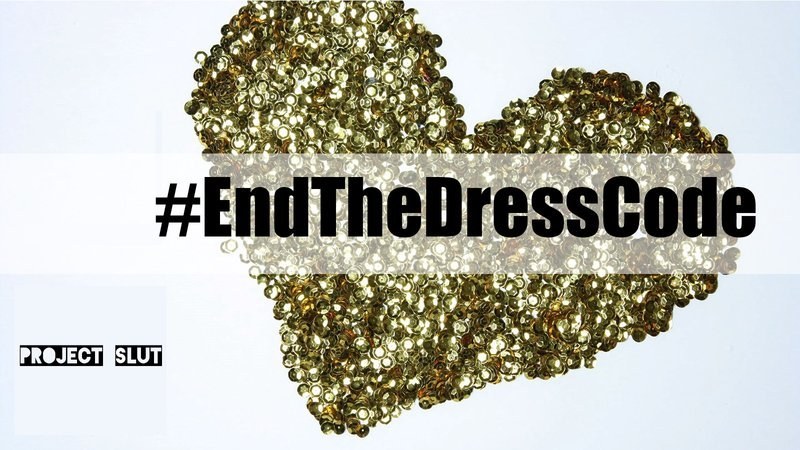
Andrea Villanueva remembers being taunted in school for wearing tank tops. Her classmates decided it was "skanky." When she asked staff for help she was told, "You don't have to dress like that," according to Villanueva.
After transferring schools, she said saw a girl humiliated by a teacher, who told her she was "wearing lingerie." It was shortly after that when Villanueva teamed up with classmates Kerin John and Erin Dixon to create Project Slut. They successfully changed the dress code at their Toronto high school and now, all 18 and graduated, they've set their sights on the entire school board.
With a campaign video and petition launching today, #EndTheDressCode is asking the Toronto District School Board (TDSB) to eliminate policies that regulate what students can and can't wear. They plan to take the petition to the board as well as to Minister of Education Liz Sandals and Ontario Premier Kathleen Wynne.
For the team, it's not just about which clothing items are forbidden, but how the rules are enforced and the people whose bodies are more regulated than others.
"Dress codes are really problematic for a lot of different folks," Villanueva told BuzzFeed Canada. "They perpetuate a lot of stereotypes, they police a bunch of people."
While there's been a recent slew of stories in the media about female students who have been targeted for wearing crop tops or short shorts, Project Slut wants to talk about students of colour, queer and trans students, and students with larger bodies. The project's founders said these people may feel less comfortable speaking up when they get in trouble.
Brock University professor Rebecca Raby has been studying school codes of conduct for a decade. She said the students she's spoken with feel they're being targeted differently.
"There was a feeling among students of colour that they were being policed differently around dress," said Raby. Black male students, for example, were accused of wearing gang-related clothing.
"Even when we had a hat rule in our school, black students would be targeted more than nonblack students," said Project Slut's Kerin John.
A study of school districts in North Carolina in 2008 and 2009 found black students were six times more likely to be suspended for dress code violations than white students. Raby said she's unaware of similar data for Canadian schools.
Her name is Claudetteia Love. She's gay, but her school won't let her wear a tux to prom. http://t.co/PCZvnIIhZ4
Dress codes can also enforce traditional gender expectations, like in the case of a gay student in Louisiana who was told earlier this year that she couldn't wear a tuxedo to prom.
In other cases, girls with larger bodies or more developed breasts told Raby they got in trouble for wearing items that thinner girls got away with. There was a sense from others she spoke with that those active in student council or clubs like cheerleading were targeted less often. While the sexualization of girls is certainly an issue, Raby said it's a bigger problem than gender alone.

"Anytime I've read any administrator commenting about this, the one word they use over and over again is that young people should dress in an 'appropriate' fashion, that they dress not as a distraction, that they dress professionally," said Shauna Pomerantz, an associate professor at Brock University and a colleague of Raby's.
It's how appropriateness is defined that troubles Pomerantz, especially if dress codes are dictated by class and race-based values.
"What you're saying is you have to look like a middle-class, heterosexual white woman," said Pomerantz.
The TDSB told BuzzFeed Canada that schools are only mandated to have a student code of conduct that includes appropriate dress. It's left intentionally vague so that schools can work with their staff and students to create a dress code — or lack thereof — that reflects the community.

But Project Slut's petition says this is a problem: "This makes for inconsistent implementation, and lack of accountability across the board. We want to work with the TDSB school board, administration and our peers to end the dress code which is oppressive in nature."
They say students should be trusted to know what's appropriate for school, especially given that many already hold jobs and know what's required in a workplace.
"We all know there's a place and time for everything, except school should be a little more open and inviting," said Villanueva.
"We do know how to dress professionally for the workplace. I promise you we know," said John.

